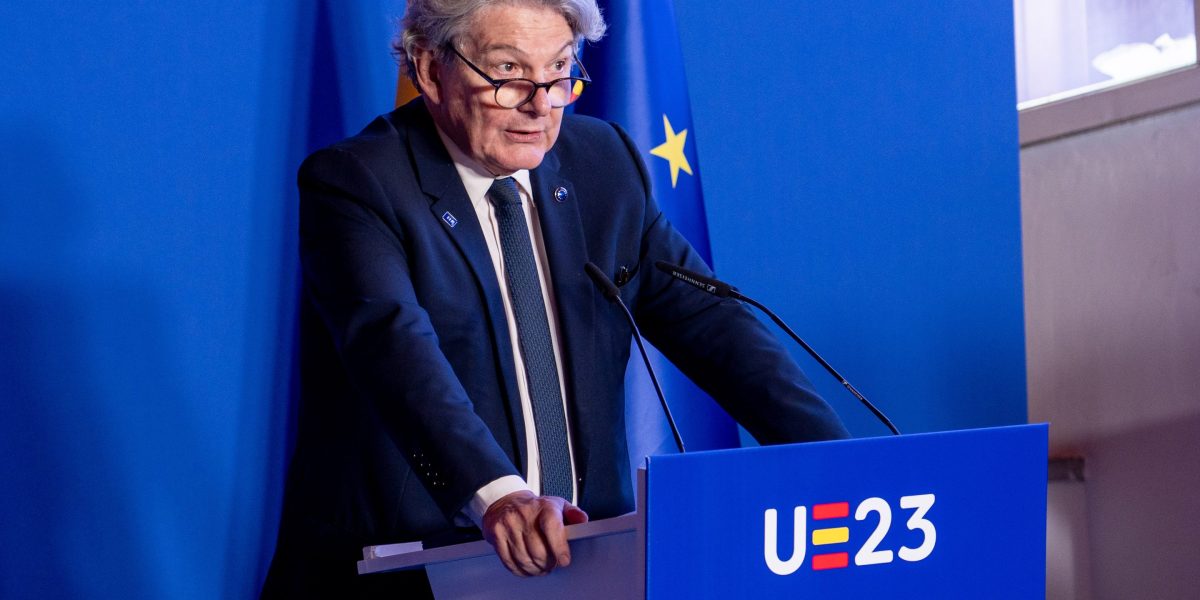On what is anticipated to be the most comprehensive regulation of artificial intelligence in the Western world, the European Union reached a contentious agreement.
Thierry Breton, the European Union’s internal market commissioner, emphasized that the deal strikes a delicate balance between fostering innovation and safeguarding the rights of individuals and businesses.
Breton mentioned that considerable effort was devoted to finding the right equilibrium between harnessing AI’s capabilities for law enforcement purposes while upholding the fundamental rights of citizens. The EU firmly opposes any form of widespread surveillance within Europe.
After more than 33 days of negotiations this year, representatives from the European Commission, European Parliament, and the 27 member states reached a consensus on a framework for regulating advanced artificial intelligence systems like ChatGPT developed by OpenAI Inc. and Google’s Bard, which have the capacity to generate content on demand.
While facial recognition technology was greenlit by negotiators, it will be subject to stringent restrictions and protective measures, as outlined by Breton. Additionally, the agreement will prohibit the use of biometric scanning that categorizes individuals based on sensitive attributes such as political beliefs, religious affiliations, sexual orientation, or race.
Although the draft policy still requires full approval from EU member states and the parliament, this agreement marks a significant step towards establishing an AI governance framework that will fill the void in the absence of substantial legislative action by the US Congress. The EU aims to implement the most comprehensive set of artificial intelligence regulations outside of Asia.
Ahead of the upcoming June elections in Europe that could usher in new leadership and potentially drive further amendments, policymakers have been diligently crafting the language of the AI Act for months in order to pass it into law.
Following an intense 24-hour marathon session from Wednesday to Thursday, the decision was finalized during the Friday session. Some negotiators were seen dozing off in the corridors while others engaged in heated discussions regarding the contentious issue of restricting facial recognition technology in public spaces.
As AI technologies gain prominence, the heated debates underscore the growing divide in discussions surrounding AI governance, pitting tech executives against global leaders. Similar to counterparts in the US and UK, the EU has grappled with finding a middle ground between protecting its burgeoning AI startups like Aleph Alpha in Germany and Mistral AI in France, while mitigating potential political risks.
Certain countries, including France and Germany, raised concerns about regulations that they argued could unduly impede local businesses, leading to significant hurdles during negotiations.
While civil servants will continue to iron out specific details in the coming weeks, most negotiators have agreed to establish guidelines for advanced AI systems, including clear standards for developers of large language models. To mitigate risks, entities posing a systemic risk will be required to adhere to an optional code of conduct, akin to the Digital Services Act, which governs content moderation in the EU.
The most challenging aspect of the negotiations revolved around determining the extent of restrictions on biometric identification tools. While the legislature initially favored total restrictions next spring, EU member states advocated for exceptions for law enforcement and national security purposes. Ultimately, both sides agreed to introduce additional safeguards for the use of such technology in public settings.






